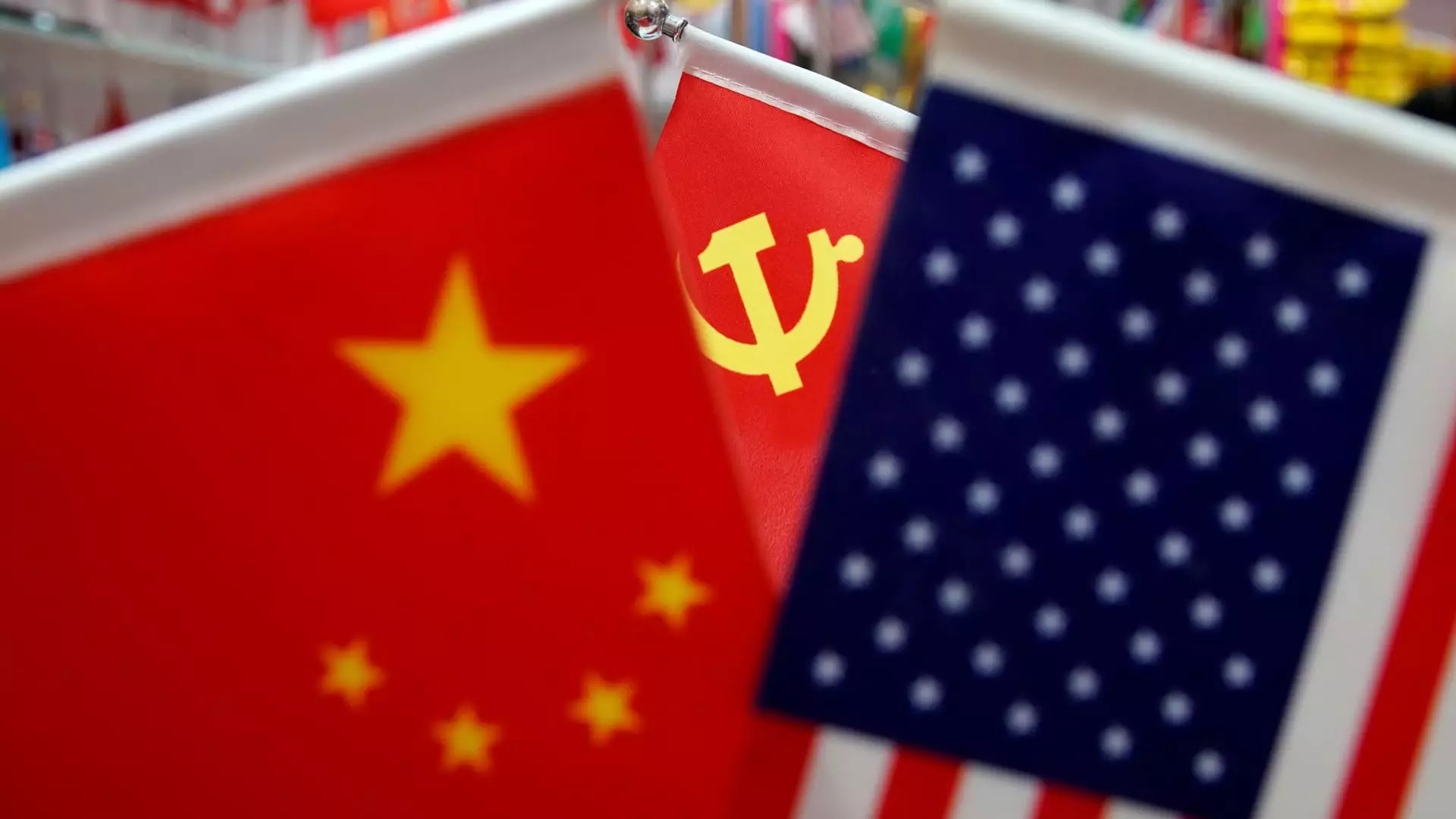In a climate stricken by escalating trade tensions and apprehension surrounding potential tariffs, China is strategically engaging with key financial leaders from the United States. The recent meetings orchestrated by Chinese Vice Premier He Lifeng represent a concerted effort by Beijing to mend and strengthen relationships with U.S. finance executives as the incoming presidential administration raises uncertainties about future economic policies. The urgency of these discussions is underscored by the rising stakes in cross-border financial relationships and the intricate economic interdependencies that have developed over the past two decades.
Vice Premier He Lifeng, a significant figure within the Chinese Communist Party’s economic apparatus, has proactively reached out to a cadre of influential U.S. finance executives. The notable engagements include discussions with prominent figures such as BlackRock’s Larry Fink, Goldman Sachs’ John E. Waldron, Citigroup’s Jane Fraser, HSBC’s Mark Tucker, and Invesco’s Andrew Schlossberg. These meetings are emblematic of China’s broader strategy to court foreign investment and signal its commitment to economic stability amid an uncertain global landscape.
The choice of executives to engage speaks volumes about China’s priorities; each participant represents a vital conduit for potential capital inflow into China. According to industry experts, these discussions not only reflect a bid for maintaining economic engagement but also demonstrate an acute awareness of the geopolitical shifts anticipated with the transition to a Trump administration.
The active maneuvering to establish back-channel communications with U.S. executives aligns with traditional Chinese diplomatic strategies. As articulated by Peter Alexander, founder of Z-Ben Advisors, this method of interaction has been a time-tested approach for China, seeking informal pathways to navigate perceived challenges. The outcomes of these discussions may have implications that extend beyond mere investment; they could influence diplomatic relations as both countries adjust to the incoming administration’s policies.
Nonetheless, the complexities inherent in these exchanges should not be understated. While U.S. executives may encounter a plethora of opportunities in China, the political climate driven by protectionist sentiments poses a substantial risk. Clark Packard of the Cato Institute highlights the potential moderating influence of Wall Street professionals within the incoming administration, suggesting that these individuals could serve as voices of reason amidst the impending economic disruptions.
The fluctuating nature of markets is likely to play a crucial role in shaping the dialogue between the U.S. and China going forward. As Packard notes, market reactions could significantly sway the policies of the Trump administration, particularly if aggressive measures are met with negative market sentiments. The Federal Reserve’s response to inflationary pressures and interest rates also remains a backdrop that could influence U.S.-China interactions.
China’s stock market has recently shown resilience, rebounding after positive signals indicating a shift toward economic stimulus, in stark contrast to earlier downturns experienced this year. These dynamics not only illustrate the interconnectedness of the two economies but also highlight the potential leverage that financial markets hold in influencing political decisions on both sides.
As reported by Chinese state media, the meetings with U.S. financial entities are framed as part of China’s ongoing commitment to opening its financial markets to international investors. Foreign investments are often touted as an endorsement of China’s market stability and growth potential. As the landscape of U.S.-China financial relationships evolves, the importance of constructive engagement cannot be underestimated.
Winston Ma, an adjunct professor at NYU School of Law, emphasizes that the evolving relationship between the two nations in terms of finance could lead to “mutual assured prosperity,” contingent upon maintaining a collaborative stance. In contrast, failure to foster a beneficial cross-border relationship could lead to more dire consequences, including economic decoupling and mutual assured destruction (MAD) in economic terms.
As China navigates these challenging waters, the commitment to dialogue with U.S. financial leaders seems to be a calculated move towards fostering long-term investment and stabilizing economic relations. However, the effectiveness of these diplomatic overtures remains to be seen, especially against the backdrop of an administration that may lean toward protectionist policies.
While the recent meetings with influential financial executives signal a proactive approach by China in the face of impending challenges, the real test will lie in the ability of both nations to transcend economic barriers and foster a genuinely cooperative dialogue that benefits both parties amidst the evolving global economic landscape.

